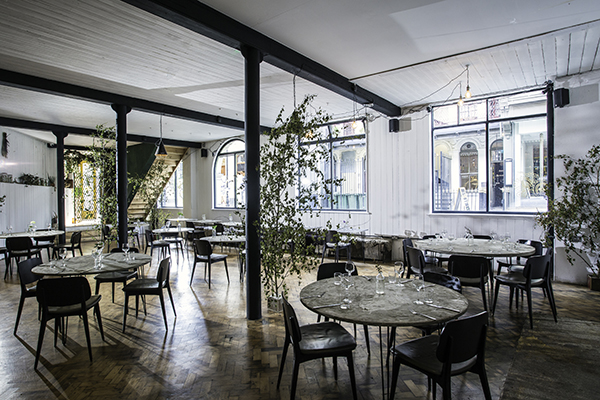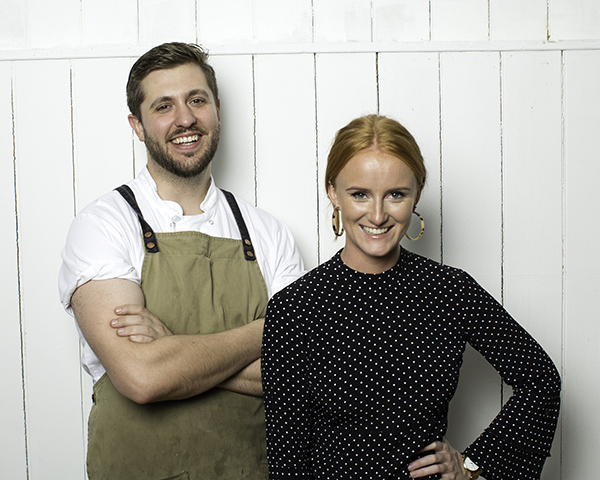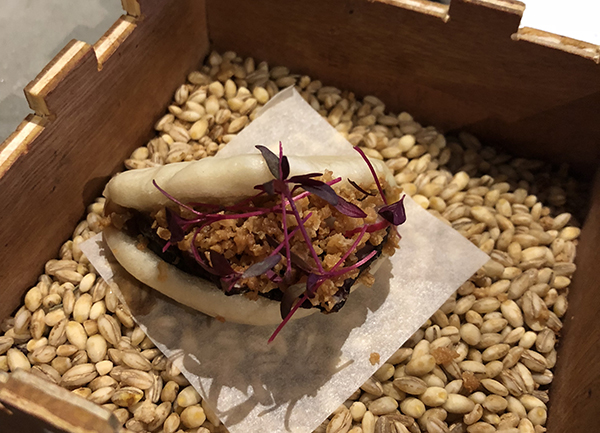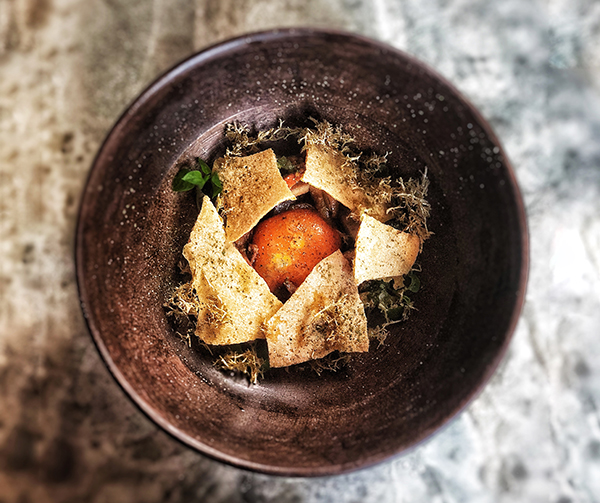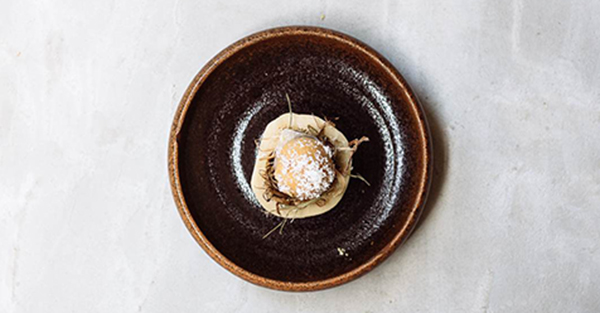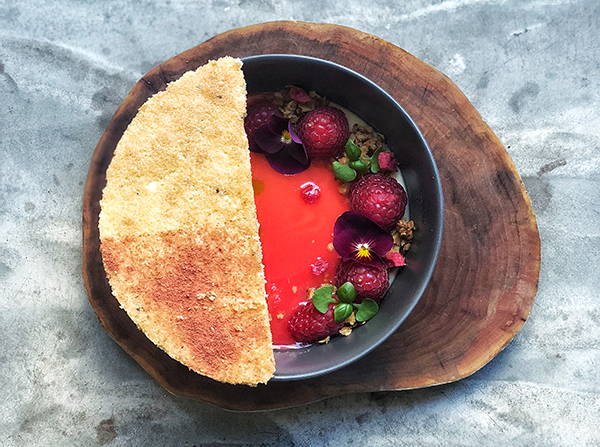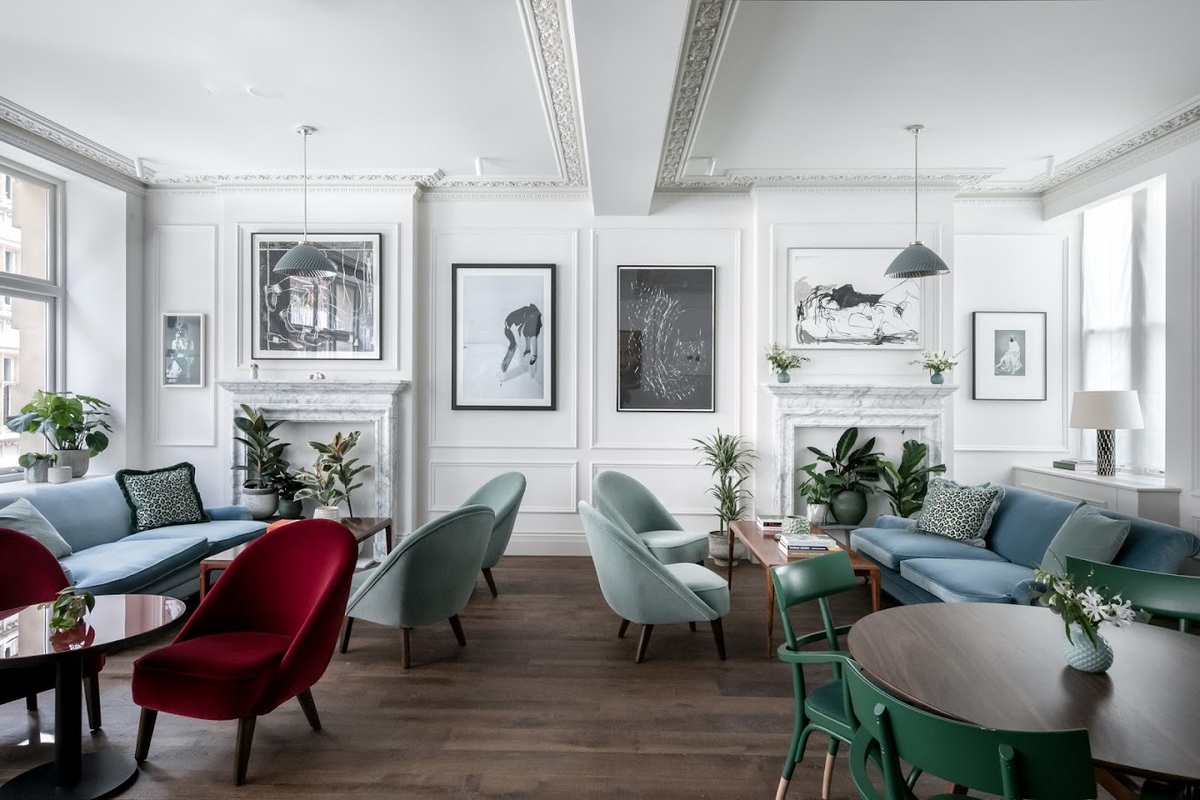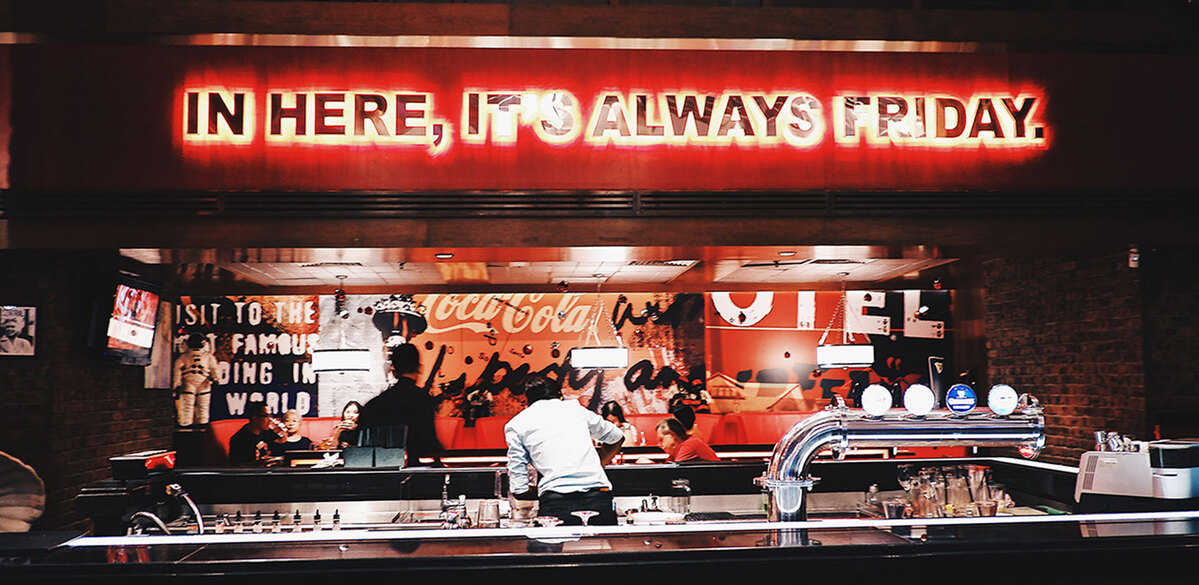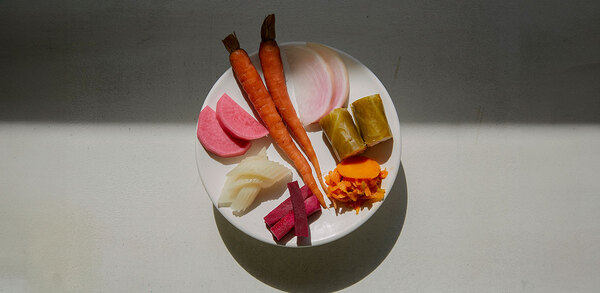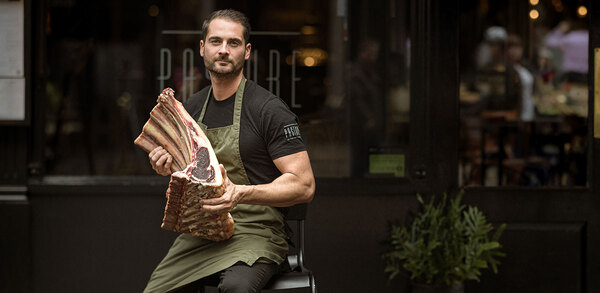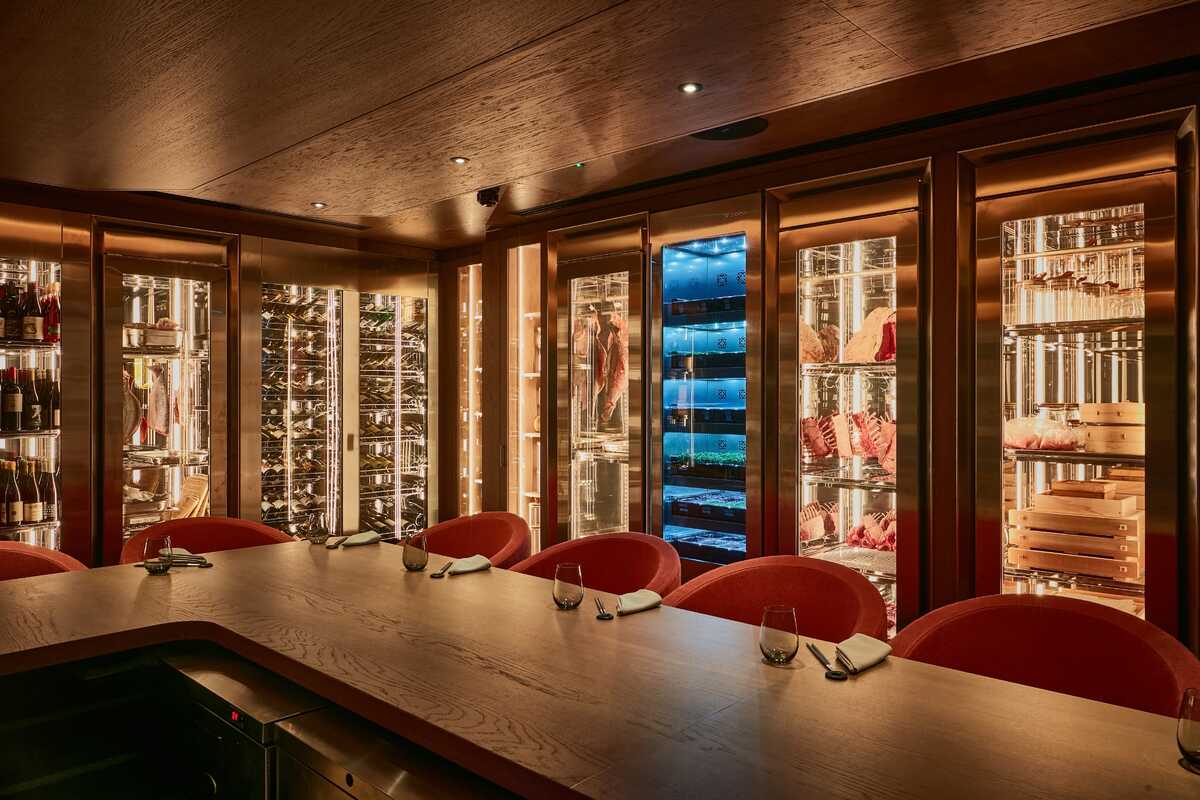Menuwatch: Native
Chef Ivan Tisdall-Downes is making use of every scrap of British produce at Native's new spacious site. James Stagg reports
Chefs naturally want to make the most of every ingredient. After all, it's good for gross profit as well as a sustainable way of operating. But at Native, Ivan Tisdall-Downes is trying to take zero-waste to new heights.
Having moved from a compact Covent Garden site to a spacious 60-cover converted studio close to London Bridge in June, chef Tisdall-Downes and fellow founder Imogen Davis now have the space to showcase their take on foraged British produce and seasonal game.
Tisdall-Downes explains that the move from 25 covers to 60 wasn't too tricky, particularly as the team had very little time to think about it, as it was a two-week transition.
"The front of house and kitchen staff painted and helped build the restaurant," he says. "My dad's a carpenter, so he made the tables, and Imogen came up with the idea of concreting them. It's all done on a budget."
The move was funded by a Kickstarter crowd-funding campaign, which reached its £50,000 target on the day of opening and helped pay the 12-strong team while the restaurant wasn't trading.
The restaurant is an open space with parquet flooring and exposed brickwork and ductwork, while tables are dark wood with a layer of light concrete decorated with pot plants.
Native's menu is designed to demonstrate Tisdall-Downes' wild food philosophy and respect for using every scrap of product. Guests can choose from an à la carte, a three-course option for £46 or a £70 tasting menu.
All meals begin with ‘chefs' wasting snacks', appetisers that the restaurant says "many would consider waste, but to us are products in their own right".
Tisdall-Downes adds: "It's not all directly waste, but we're helping our suppliers get rid of products they struggle to shift that might become their waste too."
The dishes also give the seven-strong brigade a chance to experiment, with chefs encouraged to create dishes that they then serve to the diner themselves.
One stand-out snack is the ox heart bao, with the main ingredient coming from Northfield Farm's shop in nearby Borough Market. The heart is brined for a week and smoked over organic applewood. "The public rarely has offal, so we take it off our butcher at a great price," says Tisdall-Downes. "It's a challenge for us to come up with things to do with them."
As the focus is on freshness and foraging, the menu is strictly seasonal with a skeleton for each month that features whatever foraged herbs, cuts of meat and fish are available.
"If I had a restaurant where I could cook what I wanted, I probably wouldn't be half as creative. It's the limitations that make you think out of the box," the chef says.
From the starters, foraged mushrooms with confit egg yolk, reindeer moss and sourdough cracker sum up what Native is about. The mushrooms are cured before being cooked in oil and aromats at 80°C.
"Reindeer moss is actually a lichen, and we fry it for a bit of texture," he explains. Served with sourdough crackers on top, the dish is designed to look like an autumn forest floor.
During the summer, Native tends to use mainly rare-breed meats, but when 12 August hits, grouse comes on the menu, followed by venison and other game.
Autumnal main courses this year include wild mallard and Sutton Farm squash paired with pickled kohlrabi and walnut granola, as well as South Downs venison, yeasted onion purée, wild mushroom and summer truffle.
"We keep a close eye on gross profit, so if we can elevate something like an onion purée, it means we can use a little truffle."
Desserts include bites such as the popular marrowmel, which takes the form of caramelised white chocolate ganache made using bone marrow instead of butter. Serving the white chocolate sitting on top of the bone – minus its marrow – at the end of the meal means that a use is found for even the most innocuous surplus in this restaurant where nothing is wasted.
##From the menu
Starters
- Chalk Stream trout, cucumber, fish bone caramel, samphire, whey
- Western rose veal ragù celeriac lasagne, Lincolnshire Poacher cheese, pickled walnut
- Dorset mackerel, salt-baked beets, rhubarb ketchup, hay cream
Mains
- Wild mallard, Sutton Farm squash, pickled kohlrabi, walnut granola
- Hogseed vadouvan, carrot and tempura tops, hay ash honey, dukkah
- South Downs venison, yeasted onion purée, wild mushroom, summer truffle
Desserts
- Sea buckthorn and carrot curd, whipped cream cheese, rye crumb
- Hay cream, Kentish raspberries, basil, English chai seed sable
32 Southwark Street, London SE1 1TU
www.eatnative.co.uk



